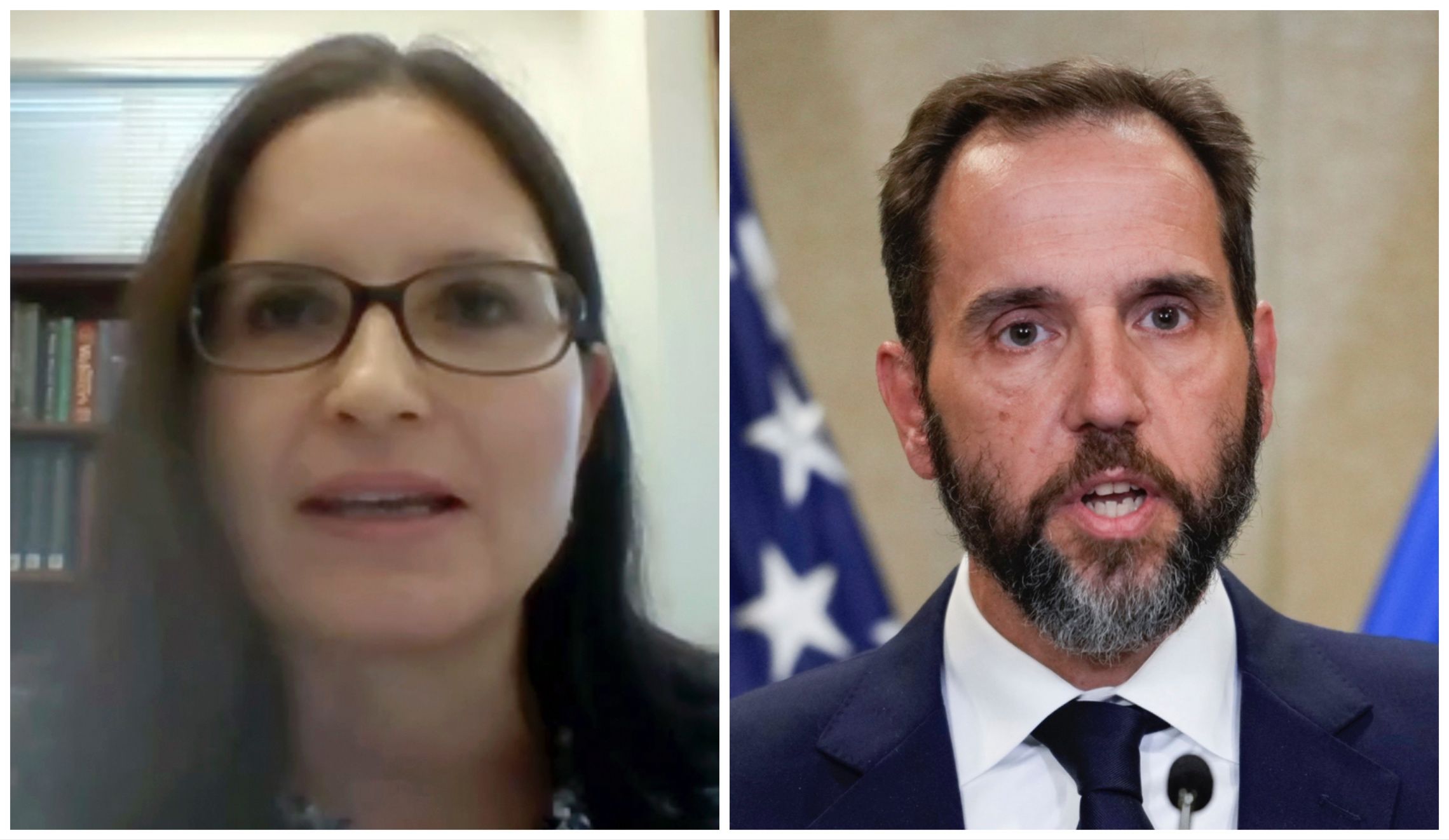

Judge Aileen Cannon pressed special counsel Jack Smith’s team during a hearing Monday about speech restrictions it was seeking to impose on Donald Trump, conveying skepticism that the former president’s words were, as Smith has argued, dangerous.
Cannon, a Trump appointee, had a couple of tense exchanges with one of the prosecutors, David Harbach, after questioning Harbach on what threats exactly Trump’s speech had prompted. Harbach became “snippy” during the questioning, according to CNN reports from the courtroom.
“I don’t appreciate your tone,” Cannon told him, cautioning the prosecutor to use “decorum.”
“If you aren’t able to do that, I’m sure one of your colleagues can take up arguing this motion,” the judge added.
Toward the end of the hearing, Harbach apologized.
“I didn’t mean to be unprofessional,” he said. “I’m sorry about that.”
Smith’s team had filed a request this month for Cannon to modify Trump’s conditions of release in the classified documents case to restrict the former president from making certain statements about law enforcement officials who executed a search of his Mar-a-Lago residence in 2022.
Trump accused President Joe Biden of plotting to kill him after discovering that the warrant contained FBI policy language about the use of “lethal force.” The wording on the warrant, according to a statement from the FBI, was standard, and it was normal practice for the bureau to use it on search warrants.
Trump, nevertheless, said in a statement online that “Crooked Joe Biden’s DOJ, in their illegal and UnConstitutional Raid of Mara-Lago, AUTHORIZED THE FBI TO USE DEADLY (LETHAL) FORCE.”
Trump also said in fundraising emails that the government “WAS AUTHORIZED TO SHOOT ME,” was “just itching to do the unthinkable,” and was “locked & loaded ready to take me out & put my family in danger.”
Prosecutors argued those types of statements put law enforcement officials working on the case at risk because Trump could be inspiring extremists to harass or threaten the officials.
“Those statements create a grossly misleading impression about the intentions and conduct of federal law enforcement agents — falsely suggesting that they were complicit in a plot to assassinate him — and expose those agents, some of whom will be witnesses at trial, to the risk of threats, violence, and harassment,” prosecutors wrote in their motion.
Judges must carefully weigh First Amendment concerns with other constitutional concerns when considering gag orders or other restrictions on speech. In two of Trump’s other criminal cases and a civil case, judges imposed gag orders on the former president that prohibited him from speaking about prosecutors, court staff, and witnesses. The judges all said the gag orders were “narrowly tailored” to preserve fair court proceedings while still allowing Trump to speak freely about most aspects of the cases.
Trump’s defense attorneys have vehemently opposed the orders, arguing that they unconstitutionally interfere with the 2024 election because they bar the presumptive Republican presidential nominee from addressing certain concerns about his legal battles to voters.
Cannon appeared leery of prosecutors’ arguments on Monday. She ended the hearing without ruling from the bench, and she offered the prosecutors a chance to provide by Wednesday a firmer correlation between Trump’s comments and serious threats they may have prompted.
CLICK HERE TO READ MORE FROM THE WASHINGTON EXAMINER
“There still needs to be a factual connection between A and B,” Cannon said.
Trump attorney Todd Blanche argued that Trump was targeting Biden, his leading election opponent, and not law enforcement officials, though Blanche conceded that “it doesn’t mean that it was right” in reference to Trump’s remarks.






